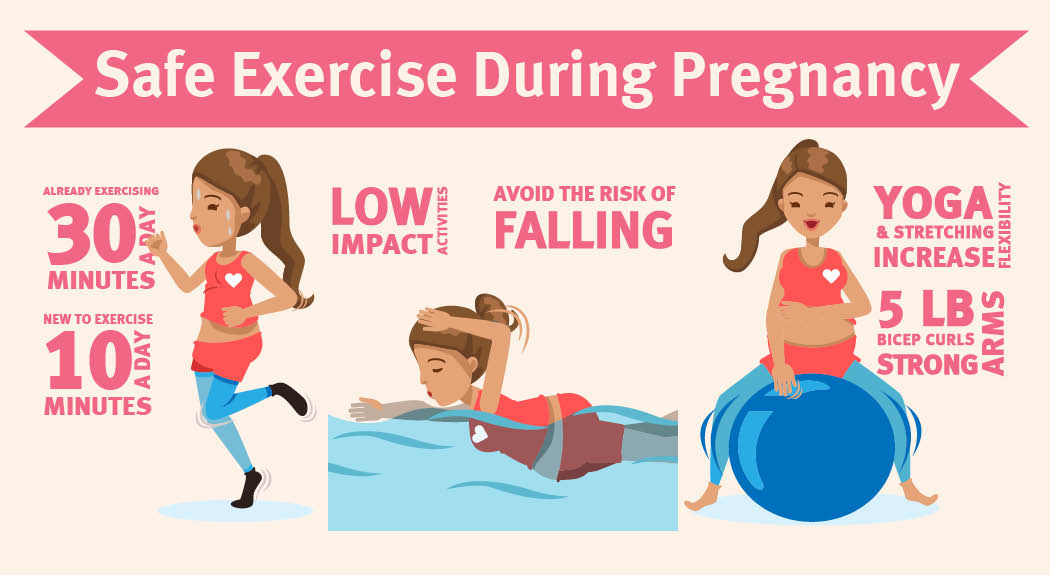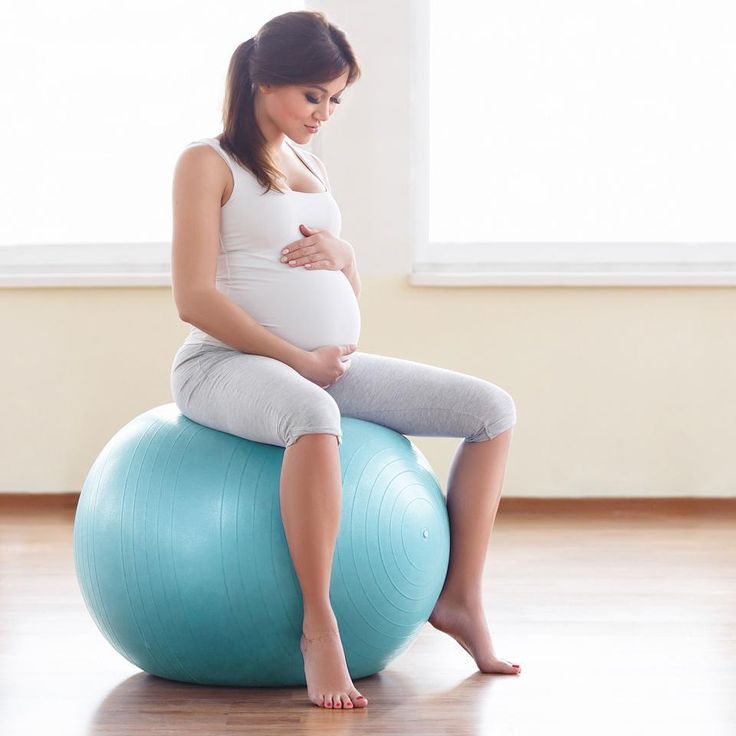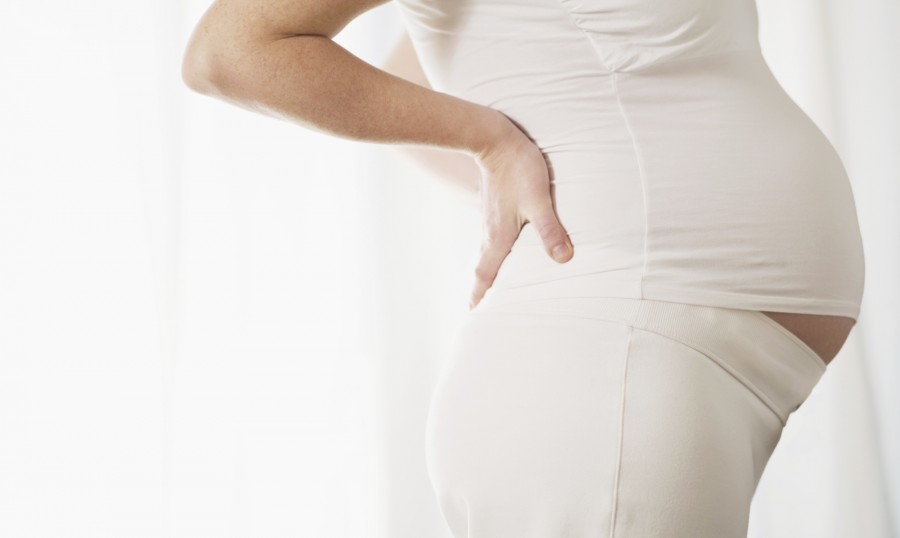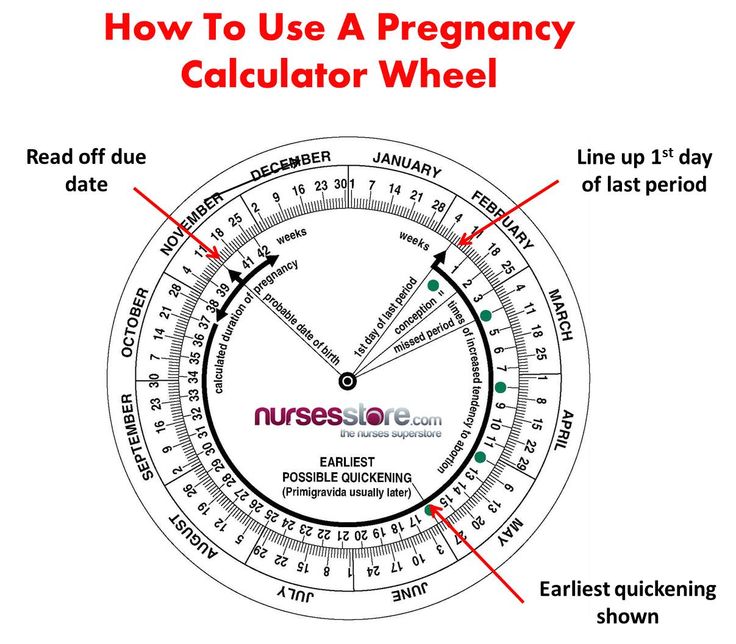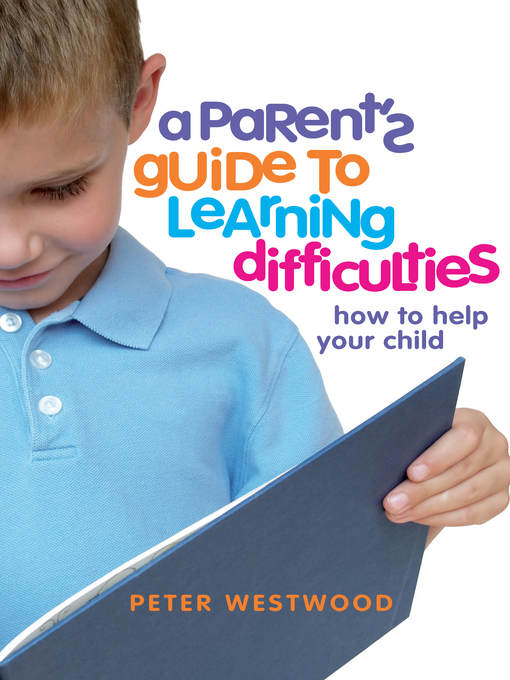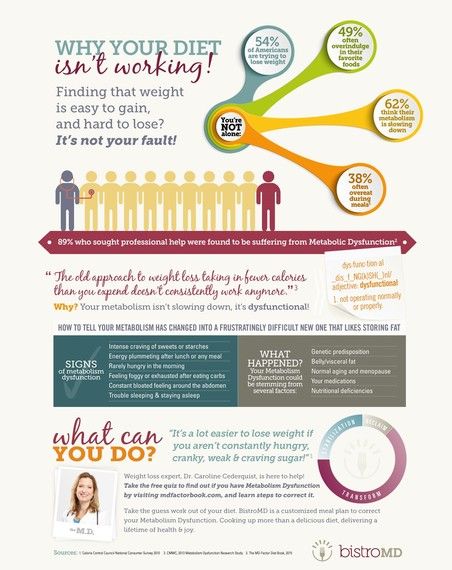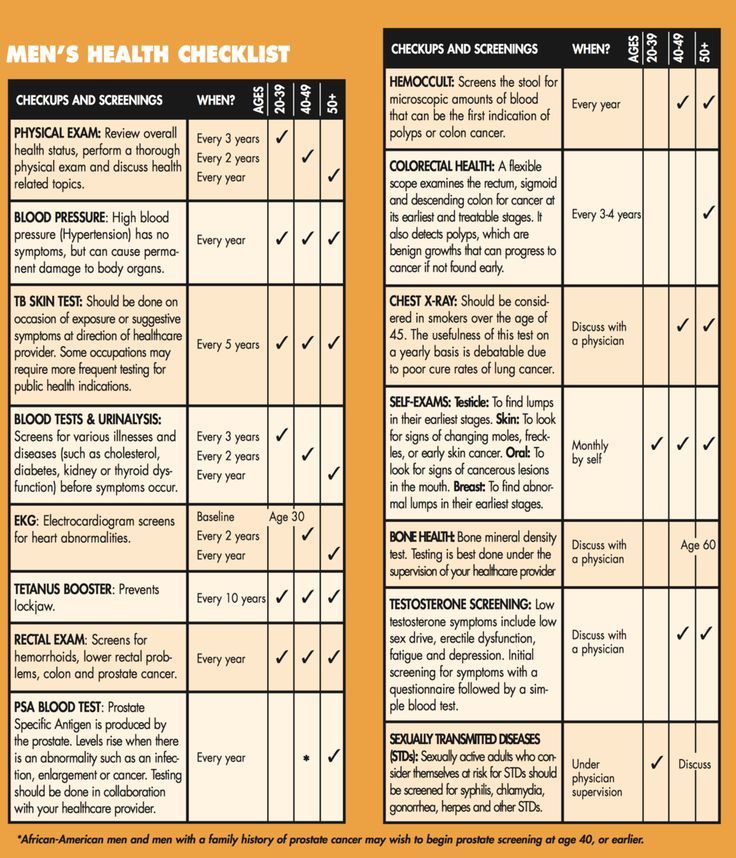Safe toothpaste during pregnancy
The Best Toothpaste to Use While Pregnant, and Other Dental Advice for Expectant Moms
There are probably few groups of people as inquisitive about healthy practices as expectant moms. They seek out information everywhere—including here at the Dental Health Society. One question we hear a lot is about what toothpaste to use when pregnant. Some are concerned about safety. Others find that brushing makes them nauseous. There are alternatives that can help, and practical answers for other dental care issues that are on new moms’ minds.
Don’t Ignore Oral Care During Pregnancy
Expecting moms strive for a healthy pregnancy, and that should include good dental health too. Pregnancy is not a good time to stop taking care of your teeth. The American Academy of Family Physicians cites poor dental health as correlated with increased risk of premature birth and low birth weight for babies. And according to the Mayo Clinic, can also contribute to heart and cardiovascular issues, sinus infections, and even strokes. If anything, women who are pregnant should be extra vigilant about their oral hygiene.
But pregnancy can make keeping up with dental health more complicated. Here are some remedies to the issues experienced by some moms as they await their bundles of joy.
Pregnancy Dilemma #1: “The Taste (or Smell) of Toothpaste Makes Me Sick”
Changes in the senses of taste and smell are just a few of the many things that pregnancy can change. Many report craving food they never liked before. On the flip side, flavors or smells they once found delicious can now make them sick to their stomachs. Some mothers find the strong mint of most toothpaste products overwhelming. The urge to skip brushing altogether for a while might be tempting.
Try This: For some women, switching to a non-mint flavor can work. Flavors like cinnamon watermelon, orange, and lemon are available from brands such as Tom’s of Maine, Hello, Red Seal, and even Colgate and Crest. Options marketed for children and toddlers sometimes offer a variety of the same flavors in milder concentrations, or no flavor at all.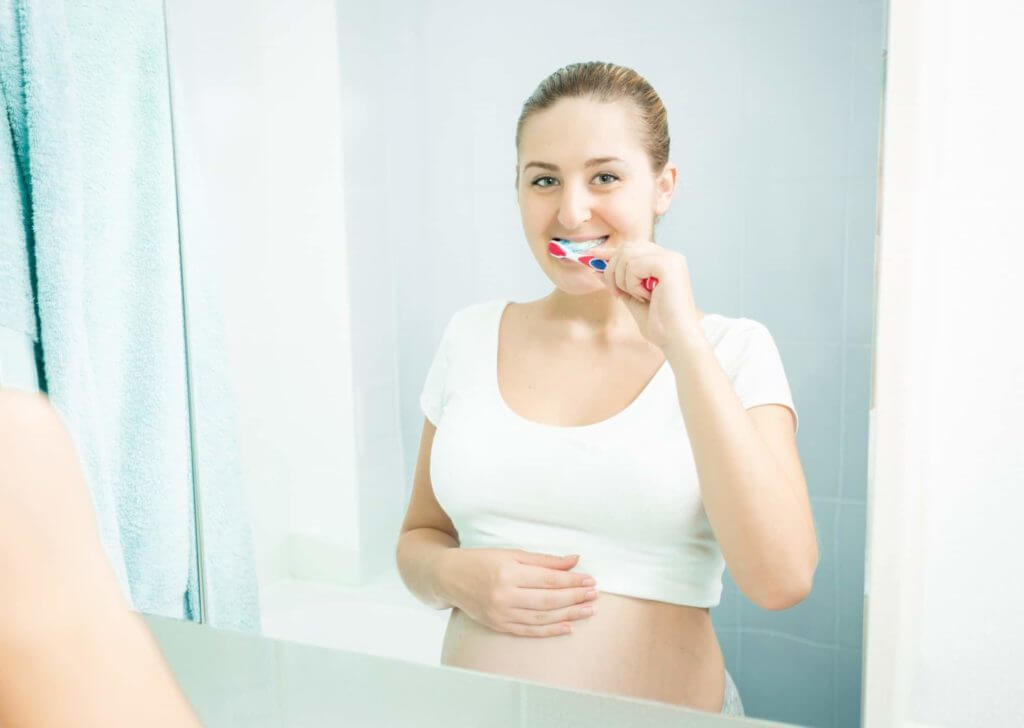
If switching up the flavor still doesn’t provide relief, there is toothpaste that is completely flavor-free. Try Cleure, Jack n Jill, or oraNurse brands.
Pregnancy Dilemma #2: Brushing Makes Me Gag
Anyone who has experienced morning sickness knows it’s not always restricted to the A.M. Many pregnant women struggle with a heightened gag reflex. Brushing teeth, especially the molars in the back, can cause dry heaving or even vomiting. When you know something is bound to make you sick, it’s tempting to skip it.
Try this: Some people find that distracting themselves from the action that’s nauseating them can help. Try a diversion like watching television, singing along (in your head) with a favorite song, or even counting floor tiles or standing on one foot while brushing. When your focus is on something completely unrelated to what you’re doing, it might be easier to get through it.
If you do get sick, remember that stomach acid can be very hard on teeth. Rinse your mouth out with water right away. Wait a 15-30 minutes to let saliva neutralize the acids naturally, then brush your teeth.
Rinse your mouth out with water right away. Wait a 15-30 minutes to let saliva neutralize the acids naturally, then brush your teeth.
Pregnancy Dilemma #3: My Gums Are Swollen
Everyone knows that pregnancy changes a woman’s body and that their ankles and feet can become swollen and uncomfortable. Swelling can also happen to a pregnant woman’s gums. Expectant mothers are actually more susceptible to some oral health issues such as gingivitis which can present as red, sensitive gums.
Try this: Switching to a softer toothbrush and toothpaste for sensitive teeth can help with the discomfort of brushing when gums are sore. Gum disease can be a serious condition, so a dentist should be consulted if the issue persists. In some cases, periodontal scaling or root planing could be necessary.
Paying special attention to one’s diet during pregnancy can make a difference for teeth and gums, as well as overall health. Vitamins A, vitamin D, and calcium contribute to good oral health.
Pregnancy Dilemma #4: Are My Cravings Harming My Teeth?
Eating right is essential for a healthy pregnancy, but some expectant moms worry about all the new things they crave. Eating for two sometimes means indulging in treats that might be passed up any other time.
Pregnant women should be aware of how their cravings could affect their teeth and gums. For example, a newfound love of gooey caramels or crunchy peanut brittle might cause dental problems. Extra care must be taken to remove sticky foods from teeth, or cavities and gum disease could result. (Read our article from National Candy Month to learn how to indulge wisely.)
Try this: When it comes to candy or ice cream, opt for treats that rinse off the teeth naturally with saliva. Things like plain chocolate candy bars will melt away on their own, while nuts and caramels will stick, giving tooth decay time to start. It’s also a good idea to drink water after sweet snacks to wash away particles until you have a chance to brush properly.
Pregnancy Dilemma #5: Are My Usual Dental Products Safe for My Baby?
Sometimes it’s hard to distinguish clear scientifically-based advice from rumor or opinion. Expectant mothers, especially, are bombarded with information about what they should and should not do. Moms wonder about the ingredients in dental products and if ingesting them even in small amounts could harm their unborn babies. The most common concerns are about fluoride and alcohol. The American Dental Association has determined that fluoride is a safe and effective way to prevent cavities for everyone, including pregnant women. They recommend drinking fluoridated water and using fluoride toothpaste.
Abstaining from alcohol is a common practice for pregnant women, and many choose to remove it from their dental hygiene routine as well. Many brands of mouthwash do contain some alcohol.
It’s important to remember that very little fluoride or alcohol is ingested when a pregnant woman uses dental products that contain them.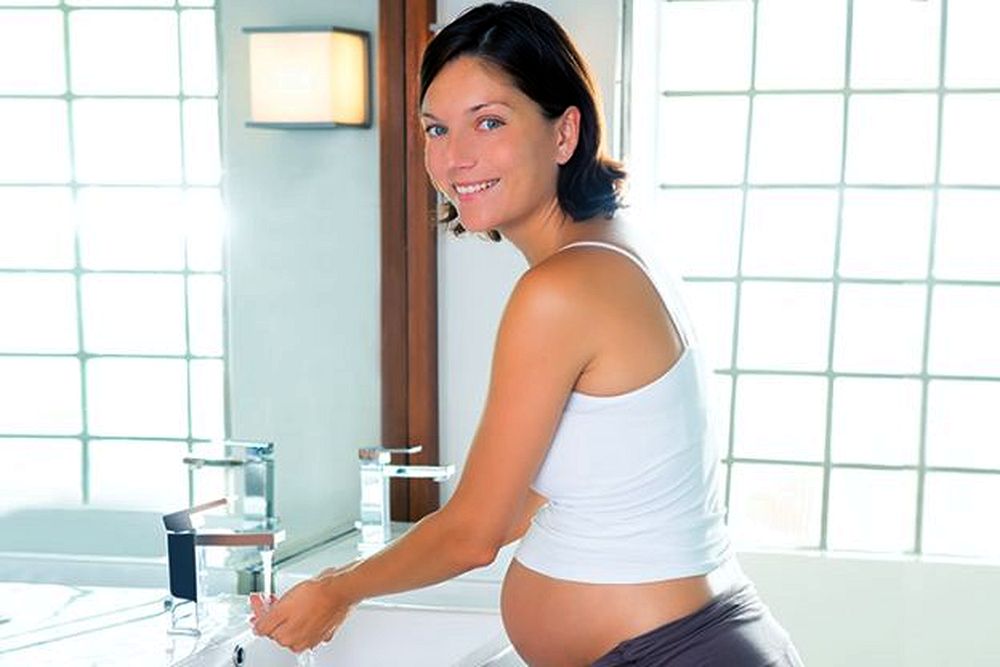 Even less makes its way to the baby through the placenta.
Even less makes its way to the baby through the placenta.
Try this: There are toothpaste and mouthwash products on the market without fluoride or alcohol for people who are still concerned. Some of the same brands that offer mint-free products also have fluoride and alcohol-free options, as well as Burt’s Bees and Arm & Hammer. CloSYS Mouthwash has no alcohol. Listerine also has an alcohol-free option.
Pregnancy Dilemma #6: I’m Too Tired to Brush and Floss
Growing a baby is hard work—it’s no wonder that expectant mothers are exhausted. It’s tempting to crawl into bed each night without taking care of the usual oral hygiene routine. Regular brushing and flossing is an essential part of maintaining healthy teeth and gums and should never be ignored.
Try this: If it’s hard to stay awake before bed to brush and floss, try changing the schedule. Take care of the nighttime routine right after dinner or after you finish a nighttime snack.![]() Once it’s out of the way for the evening, you’re free to doze off whenever you want.
Once it’s out of the way for the evening, you’re free to doze off whenever you want.
Good Dental Health is Important for Mom and Baby
At a time when every healthy choice matters to both mother and baby, it’s important for expectant moms to take care of their dental health too. Before long, your baby will be visiting the dentist for the first time themselves. The foundation you build now can affect their oral health for years to come.
What Kind of Toothpaste Should I Use When Pregnant?
Are you worried that the type of toothpaste you use could be harmful to yourself or your unborn child? If so, you aren’t alone. Many mothers-to-be are worried about whether the ingredients in their toothpaste could cause their child to develop birth defects and other health problems.
Hancock Village Dental doesn’t want you to have to worry about whether or not the toothpaste you are using is safe. Read ahead to discover why mothers-to-be are concerned about using toothpaste while pregnant and find out what, if any, types of toothpaste are safe to use.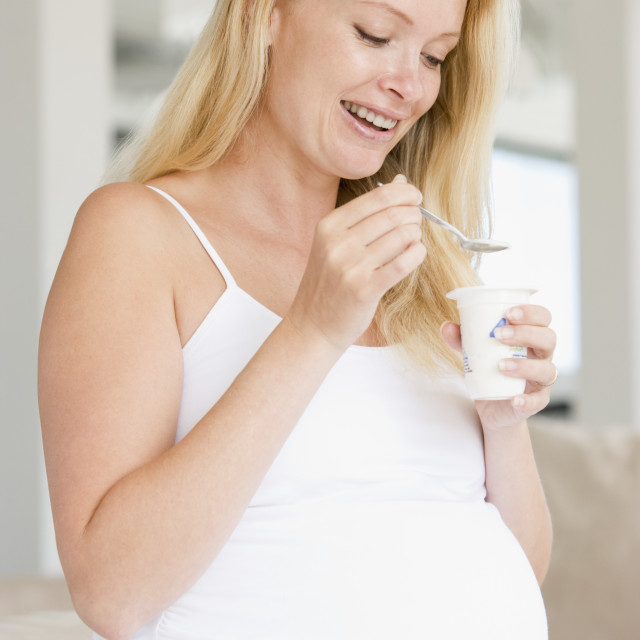
Expectant Mothers are Concerned about Fluoride Use
Expectant mothers are concerned about using fluoride while pregnant. They are concerned because some news articles and websites claim that fluoride use can be directly linked to premature births, birth defects, and even cancer. Mothers-to-be believe that when they use fluoride-based products, such as mouthwash or toothpaste, it could directly impact the growth, development, and health of their unborn baby.
No Research or Study Shows a Direct Link Between Fluoride Use and Problems with Pregnancy
The concern about using fluoride-based dental products while pregnant has only been around for several years. Since it is a relatively new concern there hasn’t been a lot of time to conduct studies that will determine if there is a link between fluoride use and problems with pregnancy.
Over the years a few studies have looked into how fluoride use impacts pregnancy. These studies were unable to prove that fluoride causes any type of birth defects or health problems.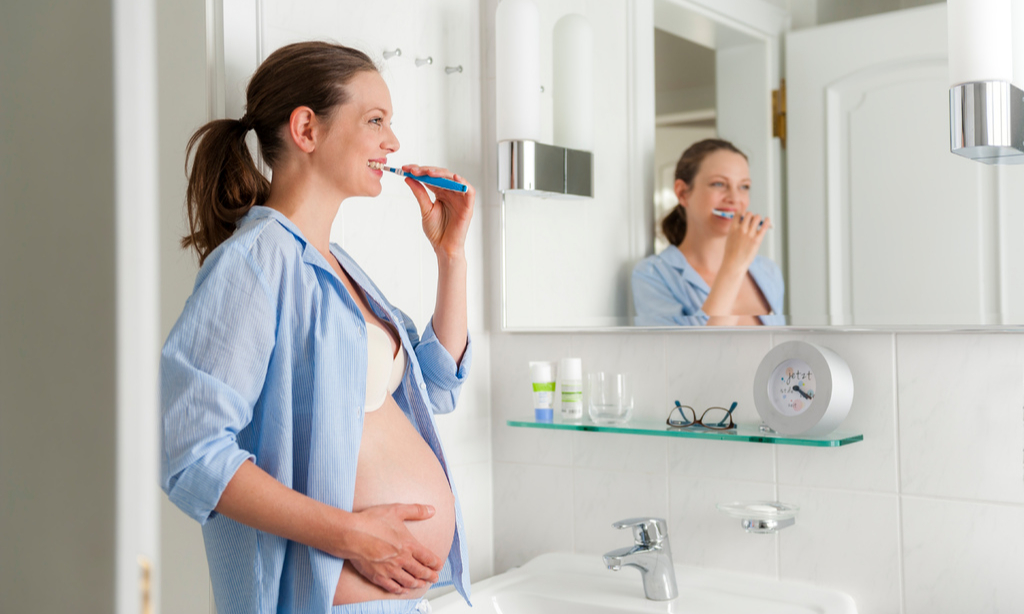
Using Fluoride Toothpastes and Mouthwashes May Improve the Health of Your Baby’s Teeth
Around the third month of your pregnancy, your baby will start to develop teeth. Using toothpaste and mouthwashes that contain fluoride can help improve the health and strength of your baby’s teeth.
Still Concerned? Use a Fluoride-Free Toothpaste
Don’t just completely stop using toothpaste if you have concerns about how it will impact the health of your child. Instead, switch the toothpaste you use from a brand that uses fluoride to one that is fluoride-free.
A fluoride-free brand of toothpaste will still remove plaque and bacteria that may be present in your mouth but it won’t contain the main ingredient that you are concerned will impact your child’s health.
Finding a fluoride-free brand of toothpaste is relatively easy. Most manufacturers list the toothpaste’s ingredients on the back of the box. Fluoride, if it is present in the toothpaste, will be listed as one of the ingredients.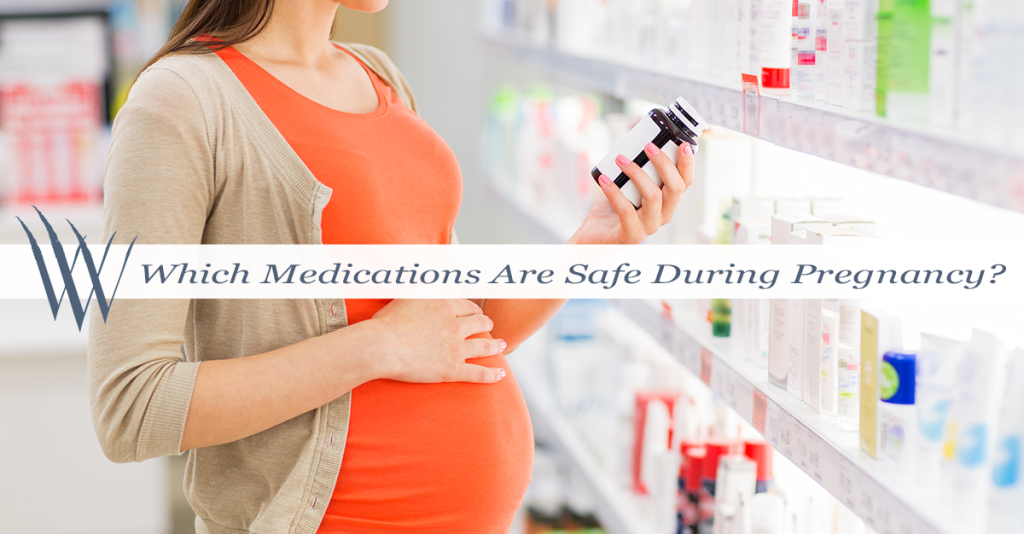 If you have problems finding fluoride-free toothpaste, call your dentist’s office and ask which brand they recommend.
If you have problems finding fluoride-free toothpaste, call your dentist’s office and ask which brand they recommend.
Things to Do to Keep Your Teeth and Gums Healthy While Pregnant
Mothers-to-be need to keep their teeth and gums healthy. If they don’t brush or floss daily or schedule regular appointments for a professional cleaning, gum disease could develop. If left untreated gum disease could cause a number of problems ranging from premature births to birth defects.
Some ways to keep your teeth and gums healthy while pregnant include:
Brushing at least three times a day
Scheduling regular professional cleanings with your dentist
Flossing at least daily
Following through with any recommended dental treatment you may need such as a deep cleaning or fillings
Avoiding teeth whitening – no studies indicate there are problems with whitening your teeth while pregnant, but most dentists recommend you avoid teeth whitening until after your pregnancy
Eating a well-balanced diet
Schedule an Appointment with Your Dentist to Discuss How to Care for Your Teeth and Gums During Pregnancy
Many mothers-to-be, especially first-time mothers, will schedule a routine examination within the first few weeks of finding out they are pregnant.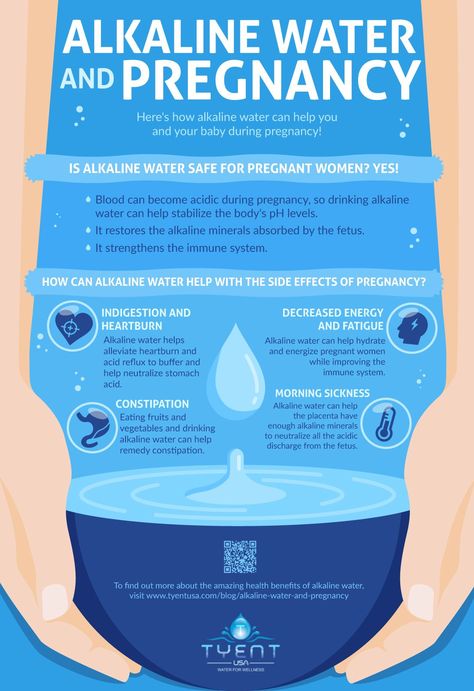 This type of appointment gives them an opportunity to discuss any concerns they may have and to have the health of their teeth and gums checked.
This type of appointment gives them an opportunity to discuss any concerns they may have and to have the health of their teeth and gums checked.
Need to schedule an appointment for an examination to discuss how to keep your teeth and gums healthy during pregnancy? Call Hancock Village Dental today to schedule an appointment. Our dental staff will not only make sure your teeth and gums are healthy, but we will provide you with recommendations for things you can do to make sure your teeth and gums are as healthy as possible throughout your pregnancy.
Which toothpaste to choose for pregnant women? - review and advice on choosing pastes during pregnancy
High test
Choosing
Interesting facts
Tips
Choose
September 21, 2020
Contrary to the common myth that during pregnancy “the baby takes calcium from the mother’s teeth”, modern dentistry knows that problems with the health of the teeth and gums during this period do not stem from this. Most often, expectant mothers complain of bad breath, increased tooth sensitivity and bleeding gums. All these are signs of exacerbation of caries, gingivitis and periodontitis. Therefore, it is very important, in addition to mandatory visits to the dentist, to choose the right toothpaste during pregnancy and take care of your teeth more carefully than usual.
Most often, expectant mothers complain of bad breath, increased tooth sensitivity and bleeding gums. All these are signs of exacerbation of caries, gingivitis and periodontitis. Therefore, it is very important, in addition to mandatory visits to the dentist, to choose the right toothpaste during pregnancy and take care of your teeth more carefully than usual.
Causes of enamel problems during pregnancy
- Changes in the hormonal background.
- Active formation of plaque.
- Violation of the acid-base balance against the background of toxicosis.
- Changing eating habits and increasing carbohydrate intake.
The main source of dental problems for expectant mothers is bacterial plaque, which forms more actively during the waiting period for the baby. As a result, the processes of enamel demineralization are intensified and the likelihood of inflammation of the soft tissues of the oral cavity increases. Therefore, during pregnancy it is important to improve the quality of dental care: brush at least 2 times a day, use additional hygiene products (irrigator and dental floss) and do not forget about professional oral hygiene.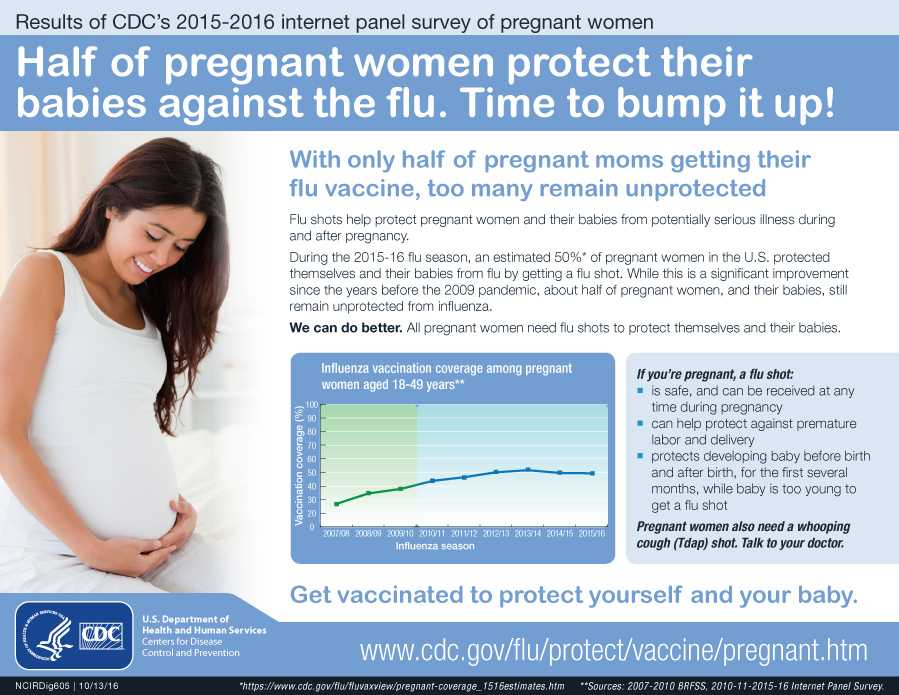 Experts recommend visiting the dentist at least 3-4 times for a preventive examination.
Experts recommend visiting the dentist at least 3-4 times for a preventive examination.
Recommendations for choosing toothpaste during pregnancy
- Do not choose a paste with SLS or parabens in the composition. Sodium lauryl sulfate (the same SLS) dries the oral mucosa and increases the susceptibility of the gums to the negative effects of microbes. These components have a cumulative property and can provoke an allergic reaction.
- Avoid products with triclosan and antibiotics. No matter how much you want to destroy the bacteria that have a harmful effect on the enamel, remember that an aggressive toothpaste will kill both harmful and beneficial microorganisms. This is fraught with problems with the microflora of the oral cavity.
- Opt for a low abrasion paste. To avoid damage to the enamel, it is better to use a toothpaste with a low amount of fine whitening particles. It is better to forget about aggressive whitening during pregnancy completely.
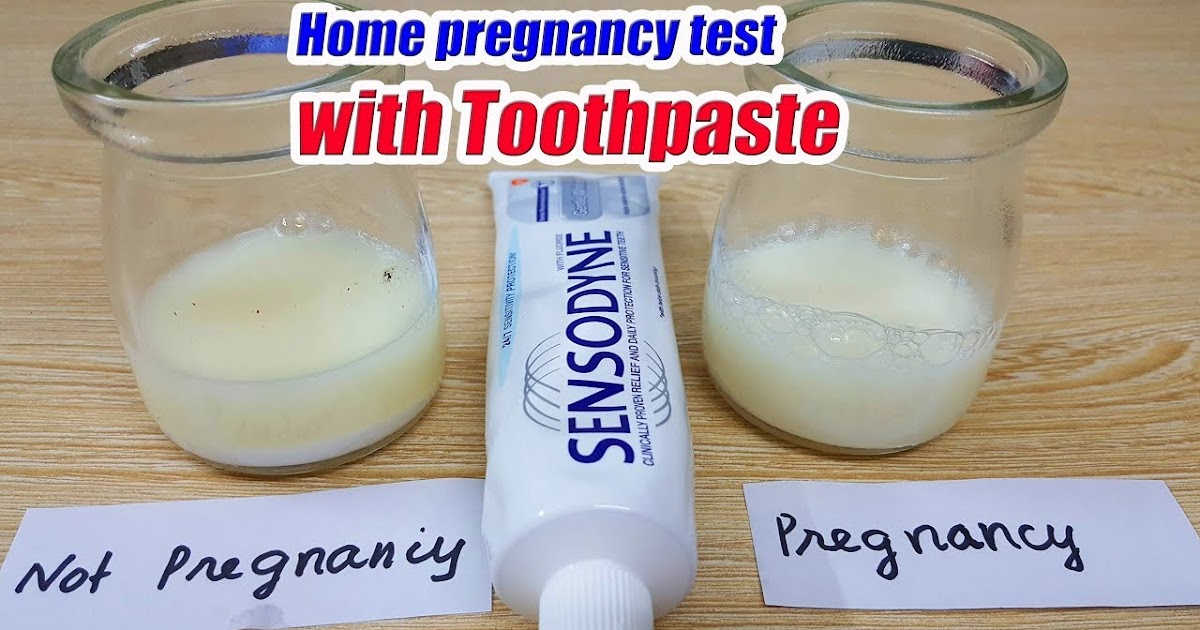
- Avoid products with a strong smell and taste. In order not to irritate the receptors and not feel unpleasant tides of nausea, it is better to use milder products with neutral herbal or mild refreshing taste and aroma.
- Give preference to toothpaste with fluoride and calcium. Calcium has a remineralizing effect, but dentists have different attitudes towards fluoride in toothpaste. Some experts do not recommend the use of a tool with this element in the composition due to its potential toxicity. But adults do not swallow toothpaste, and fluoride is not absorbed into the body through the mucous membranes of the mouth. Therefore, its negative impact is somewhat exaggerated. But the strengthening effect of fluoride on enamel is unconditionally recognized by all.
When should you really stop using fluoride toothpaste?
-
With fluorosis, if the diagnosis is confirmed by a dentist.
-
If in a place where a pregnant woman lives, there is a lot of fluoride in the water.

-
With a balanced diet with sufficient fluoride from foods. However, this is rather an ideal situation.
Overview of toothpastes suitable for use during pregnancy
R.O.C.S. Toothpaste Bionics for gum health
Buy
R.O.C.S. Bionics
Low abrasive toothpaste without fluoride. It contains natural ingredients, mineral salts and calcium glycerophosphate, which help to reduce sensitivity, relieve inflammation and activate metabolic processes in the periodontium.
Dentissimo Pregnant Lady & Young Mum toothpaste for pregnant women and young mothers
Buy
Dentissimo Pregnant Lady & Young Mum
The paste is specially designed for pregnant women and young mothers and contains calcium compounds, vitamin B5, calendula and geranium extracts. Its main action is to reduce tooth sensitivity, strengthen enamel. The product does not cause nausea.
The product does not cause nausea.
Biorepair Plus Parodontgel Toothpaste
Buy
Biorepair Plus
This toothpaste is recommended during pregnancy to prevent gingivitis. The composition of the product includes components with anti-inflammatory and antimicrobial properties: hyaluronic acid, calendula, witch hazel extract, lactoferrin.
Curaprox Enzycal Zero Toothpaste
Buy
Curaprox Enzycal Zero
This toothpaste is free of SLS and fluoride. Its main advantage is to enhance the cleansing, remineralizing and antimicrobial action of saliva. The tool has an ideal abrasiveness (RDA = 60).
Apagard M-Plus whitening toothpaste, 60 g
Buy now
Apagard M Plus
Fluoride-free toothpaste to gently remove plaque, whiten enamel and improve caries resistance. The composition contains nano-hydroxyapatite - a component that is embedded in the crystalline structure of the enamel and fills microcracks on it.
The composition contains nano-hydroxyapatite - a component that is embedded in the crystalline structure of the enamel and fills microcracks on it.
Remember: the condition of the enamel worsens not because of pregnancy, but because of insufficient dental care. Therefore, we recommend expectant mothers to definitely visit a dentist, monitor their dental health more carefully and give preference to reliable toothpastes with a balanced composition, neutral aroma and taste.
Dentists in Kudrovo recommend toothpaste for pregnant women
Author of the article Shapurko Oksana Nikolaevna, dentist-therapist
Dentists doctors of our dentistry Stoma's visit in Kudrovo recommend toothpastes proven and safe for the future mother and child for use during pregnancy. The fact is that during pregnancy, a woman's body undergoes a significant restructuring, which captures the oral cavity and can harm the teeth and gums. In order to compensate for the negative consequences and maintain a healthy oral cavity, you should carefully consider the selection of toothpastes used, since the use of some of them during this happy and difficult period may be undesirable.
In order to compensate for the negative consequences and maintain a healthy oral cavity, you should carefully consider the selection of toothpastes used, since the use of some of them during this happy and difficult period may be undesirable.
Shapurko Oksana Nikolaevna
Dentist-therapist
Pregnant women have a lack of calcium, since most of it is spent on building the child's body. During this period, the blood supply to the gums worsens, the acidity of saliva increases, the hormonal background changes not for the better, toxicosis contributes to increased sensitivity of the teeth and the manifestation of caries. All these problems of pregnant women with teeth and gums should be stopped in time with the help of proper care for them, in which a properly selected toothpaste will help a woman. It should be hyperallergenic, able to heal and strengthen the gums, restore tooth enamel and remove inflammation. To obtain the desired properties, certain substances are added to the paste.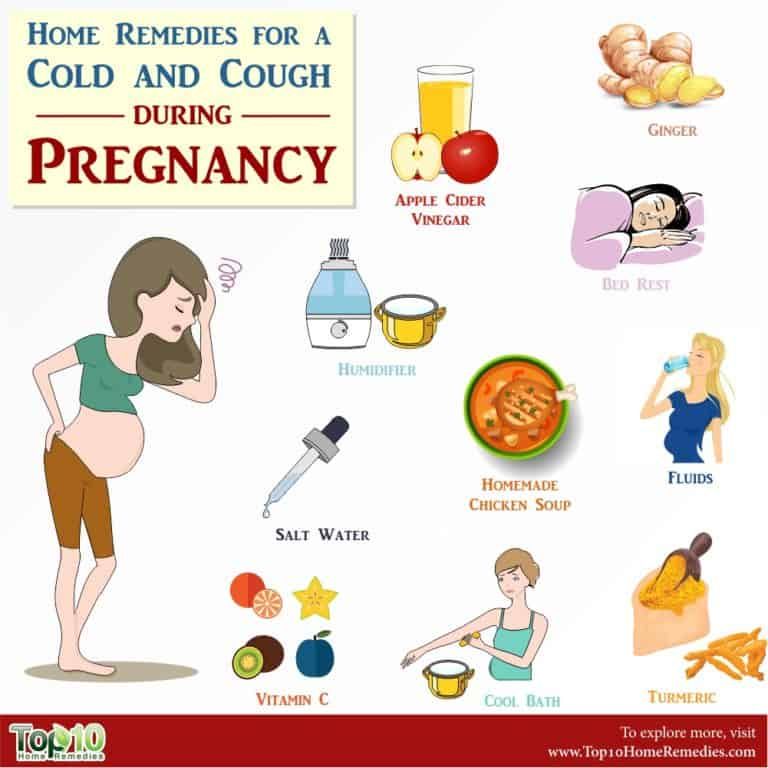
Primarily calcium. Secondly, fluorine, which forms a sparingly soluble compound with calcium, restores weakened enamel and, thus, inhibits the development of carious processes. The simultaneous use of calcium and fluoride in toothpaste is unacceptable, as they will bind each other and will not have a positive effect on the teeth. It is optimal to use calcium pastes in the presence of fluoridated tap water.
Another desirable toothpaste additive is enzymes that can break down plaque without harming soft tissues. They destroy bacteria, having a good effect on the periodontal and oral mucosa.
Pregnant women are recommended toothpastes with vitamins (C, E and D-panthenol), which stimulate regeneration processes and activate metabolism in the soft tissues of the oral cavity. They enrich tissues with microelements, reduce their soreness, bleeding and inflammation.
Organic additives in toothpastes will play a positive role in the condition of the oral cavity of the expectant mother. They are safe for the health of both her and the child, providing a favorable anti-inflammatory, antiseptic and tanning effect on the gums.
They are safe for the health of both her and the child, providing a favorable anti-inflammatory, antiseptic and tanning effect on the gums.
Toothpastes often contain substances that are harmless to a woman in her normal state, but contraindicated for her weakened body during pregnancy. These substances include triclosan, parabens, paraffins and fragrances.
Keeping a pregnant woman's mouth healthy requires some preventive measures.
Toxicosis of pregnancy leads to an increase in the acidity of saliva, which contributes to the erosion of tooth enamel. Appearing white spots on the teeth indicate the presence of the first stage of caries. To maintain healthy teeth, you should use regenerating gels such as GC Tooth Mousse , which are superimposed on the teeth.
These gels are used as applications after brushing your teeth to restore and strengthen tooth enamel and are not substitutes for toothpaste. For example, GC Tooth Mousse gel tastes good and is free of toxic substances. It contains biologically available calcium and phosphorus, which are necessary to preserve these minerals in tooth enamel.
It contains biologically available calcium and phosphorus, which are necessary to preserve these minerals in tooth enamel.
Consider some toothpastes specifically designed for pregnant women and new mothers.
DENTISSIMO toothpaste contains natural, biologically active ingredients that remove plaque and strengthen enamel. It includes calcium glycerophosphate and hydroxyapatite, which remineralize enamel, prevent caries and whiten teeth . The paste contains vitamins B5 and B9, xylitol (against caries and plaque), as well as geranium and calendula extract, which are natural antiseptics that reduce inflammation and gum sensitivity. It does not contain fluorine, sodium lauryl sulfate, parabens and triclosan. The paste is good for the prevention and treatment of caries, stomatitis and periodontal disease. It has a pleasant smell and taste that does not cause attacks of toxicosis.
PresiDENT PREGGY mint flavored maternity and nursing toothpaste.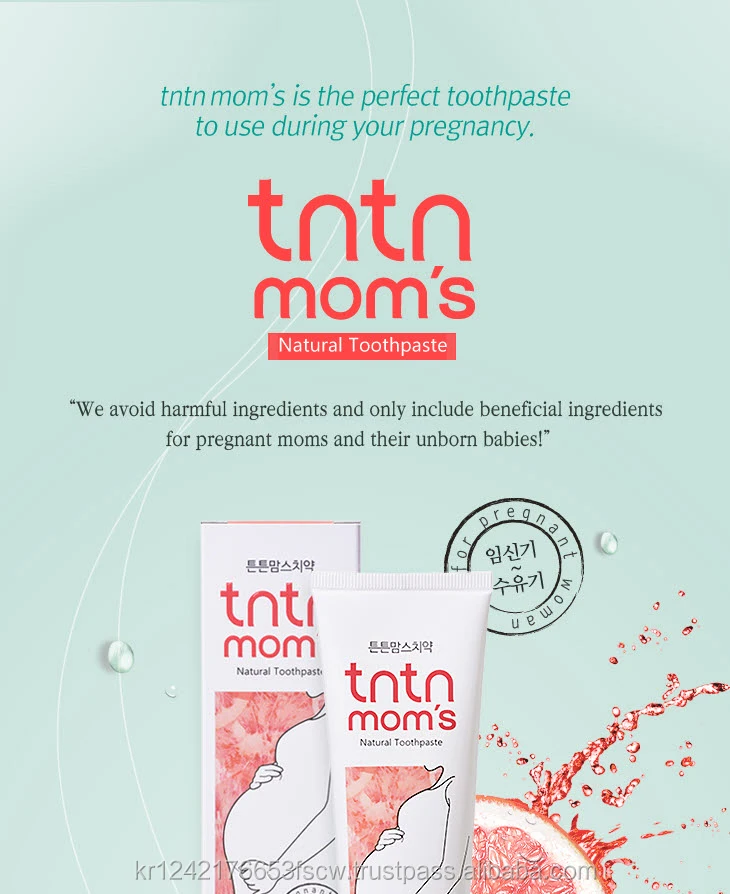 It contains a soft abrasive in the form of silicon dioxide, which is not capable of damaging tooth enamel, strengthening and renewing the enamel of hydroxyapatite, strengthening the gums, kelp extract, as well as fluorides that reduce tooth sensitivity and fight caries. In addition, the paste contains calcium lactate, which is necessary for pregnant women and is easy to digest. Instead of sodium lauryl sulfate, sodium coco sulfate is added to the paste as a foaming component, which does not cause much irritation in pregnant women.
It contains a soft abrasive in the form of silicon dioxide, which is not capable of damaging tooth enamel, strengthening and renewing the enamel of hydroxyapatite, strengthening the gums, kelp extract, as well as fluorides that reduce tooth sensitivity and fight caries. In addition, the paste contains calcium lactate, which is necessary for pregnant women and is easy to digest. Instead of sodium lauryl sulfate, sodium coco sulfate is added to the paste as a foaming component, which does not cause much irritation in pregnant women.
Natural toothpaste Weleda Ratania. The effect is achieved through the use of natural ingredients. It uses calcium carbonate as an abrasive, which carefully and carefully removes plaque from the surface of the tooth. The tannic properties of ratania eliminate bleeding gums and restore periodontium. Peppermint extract helps get rid of bad breath. The bitter herbaceous-mint taste of the paste can enhance the manifestation of toxicosis and is not always indicated during this period.